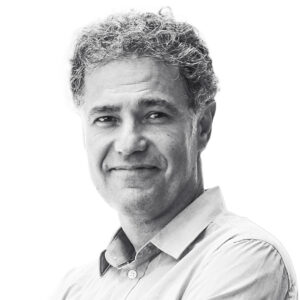Using The World Cafe to Reach Shared Conclusions-EN

Alfred Maeso Aztarain
- Business Agility
- Article
Tabla de contenidos
Consider the following scenario: you have been given the task of designing a course for a team of 50 people. Unfortunately, the stakeholders who are needed to design the course are rarely together, like maybe once a year. Also, the course needs to be collaborative in order to properly form relationships, establish competencies and build teams.
Everyone in the course design workshop will need to participate and contribute since the objective of the session is to determine concrete conclusions on the issues that most concern the team. Given the limited amount of time the stakeholders have together, the workshop will need to be fully conducted within the time available.
I experienced this situation last week while helping a large company in their organizational transformation. I organized the course design workshop using a technical facilitation workshop technique called The World Cafe, and I want to share the experience in this article. Maybe you can use it within your own company (or call me to facilitate one for you!)
World Café: Involve People in Important Conversations
The World Cafe is “a powerful social technology for engaging people in conversations that matter, offering an effective antidote to the fast-paced fragmentation and lack of connection in today’s world.” It aims to facilitate interaction, idea sharing, and group knowledge development by utilizing an informal environment, much like a cafe. Hosting the event in a “hospitable” space provides a relaxed atmosphere where participants can feel comfortable and safe to share their contributions.
This flexible cafe format consists of a simple process and seven principles.
The Principles of a World Cafe
The (universal) 7 principles of a World Café are the following:
- Set the Context
- Create Hospitable Space
- Explore Questions that Matter
- Encourage Everyone’s Contribution
- Connect Diverse Perspectives
- Listen Together for Patterns and Insights
- Share Collective Discoveries
It is important that all participants understand the context and objectives of the workshop so that conversations revolve around the goals and everyone contributes to reaching the right conclusions.
A Real-World Example
To kick off the workshop, the person leading the transformation explained the organizational situation, related milestones, and objectives of the workshop – he then invited everyone to participate. The objectives, agenda, and expected deliverables of the session were made visible on the walls throughout the workshop for easy reference.
We set up the room using round tables and around them we provided flipcharts, markers, post-its… and coffee, of course.

Participants were divided into groups based on the area they work in – each of these areas were a part of the transformation. Before starting the workshop process, each group discussed the current situation, the challenges they were going through, and their visions of how the future should be.
These summaries were visible to everyone at the tables and we officially started the World Cafe.
Each table named a host. The host will receive visitors, explain their business area, and help generate conversations to collect feedback.
With a host named at each table and summaries visible, we started twenty-minute rounds of discussion. While the host remained at the home table, the remaining participants visited the other table/business areas to learn and contribute feedback (the number of available chairs limited the number of people per table).

Once the “rounds” were completed and everyone had visited each of the tables, everyone returned to their home table to process all the feedback. This is not only the feedback received by the host, but also the ideas collected from the non-host participants.
To close the session, each table presented their final conclusions.
The World Cafe participants left the session with a shared understanding and complete definitions of their current and the future environments as well as a first draft of their transformation roadmap.
In addition to the tangible results, the workshop helped boost team morale by establishing an open, collaborative culture that promotes maximum involvement from the people actually doing the transformation work. By being a part of the transformation planning, the participants have some ownership of the transformation. Also, it allows for different business areas to establish a network of shared knowledge about the transformation.
The World Cafe Conclusion
After the workshop was over, I collected the participants’ impressions by utilizing a feedback wall. These are some of the responses:
- Session Power
- Positive thinking
- Teamwork
- Time spent sharing with colleagues
- Cross Feedback
Try this technique in your next facilitated session!
– Miquel
Sobre el autor
